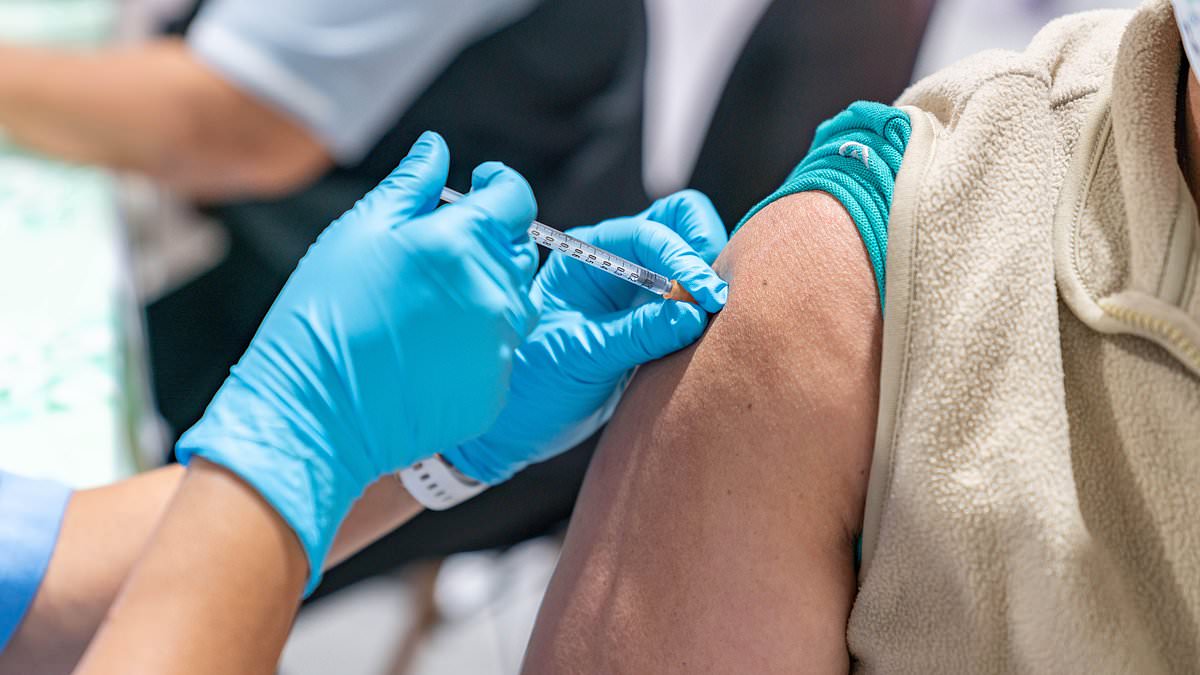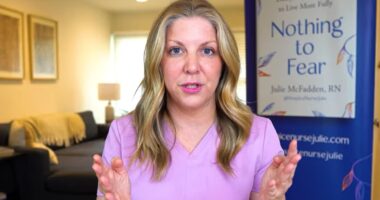A new vaccine that wards off a respiratory virus could save the lives of thousands of elderly people in the UK each year, according to a study.
It could also help free up thousands of GP appointments and hospital beds, researchers said.
The review by scientists at the University of Aberdeen and the MRC- University of Glasgow Centre for Virus Research follows the NHS rollout last month of the respiratory syncytial virus (RSV) jab, which is being offered to people aged 75 and over, as well as pregnant women.
RSV typically causes cold-like symptoms in healthy adults, but babies and the elderly are at risk of severe infection.
The study, published in Age & Ageing, said evidence suggests a 70 per cent take-up of the vaccine among the older age group could prevent up to 2,800 deaths a year.

A new vaccine that wards off RSV could save the lives of thousands of elderly people in the UK each year, according to a study

The virus is usually spread via coughs and sneezes, close contact with an infected person or contact with contaminated surfaces
It could also free up 36,000 GP consultations and 1,000 admissions to intensive care.
According to the research, the vaccines were found to be 86 percent effective in preventing RSV-related lower respiratory tract infections in the first year after vaccination.
However, the authors warn of a culture of ‘vaccine fatigue’ as well as ‘vaccine hesitancy’ which could impact on the numbers of older people accepting the vaccine.
Professor Roy Soiza, who led the research, said: ‘The NHS is badly stretched, so efforts to reduce the burden from communicable diseases such as RSV infection are highly desirable.
‘Our review found that the vaccines are safe and effective and we are calling on healthcare professionals and carers to encourage those invited to receive the vaccine to take up the opportunity.
‘There is evidence of effectiveness in preventing RSV-related lower respiratory tract infections of around 86 percent in the first year after vaccination.
‘Trials have been conducted in people aged over 60 years of age, including those with underlying medical conditions, but the number of volunteers aged 80 or over was too small to be certain of the extent of benefit.
‘Nevertheless, we saw in the Covid pandemic that the effectiveness of vaccines in trials of younger and healthier people was replicated in those who were much frailer and older.
‘We therefore urge those with an interest in the care of older people to encourage those eligible and invited to have the new vaccine to take it.’
Dr Sam Ghebrehewet, Head of Immunisation and Vaccination at Public Health Scotland, said: ‘The recent launch of Scotland’s new RSV vaccination programme marks another significant step forward to protect the health of the population.
‘RSV can be very serious for those who are more vulnerable, such as older adults. In recent years, we’ve seen an increase in those aged 75 years and over being hospitalised for RSV.

For young children and older adults, RSV can lead to breathing difficulties and even severe pneumonia-like lung infections
‘That’s why we’re asking all those who are eligible for the RSV vaccine to take up the offer to protect themselves against the more serious complications of an RSV infection.’
Antonia Ho, Professor of Infectious Diseases at the MRC-University of Glasgow Centre for Virus Research, who collaborated on the research said: ‘The availability of the first effective RSV vaccines in the UK is really exciting.
‘Along with existing influenza and covid-19 vaccines, they will allow us to protect vulnerable groups from serious lung infections, and reduce the enormous pressures faced by the NHS in the winter months.
‘The vaccination catch-up campaign for 76 to 79 years is due to end on 30 September 2024 and I would urge those who are eligible to attend their vaccination appointment.’










